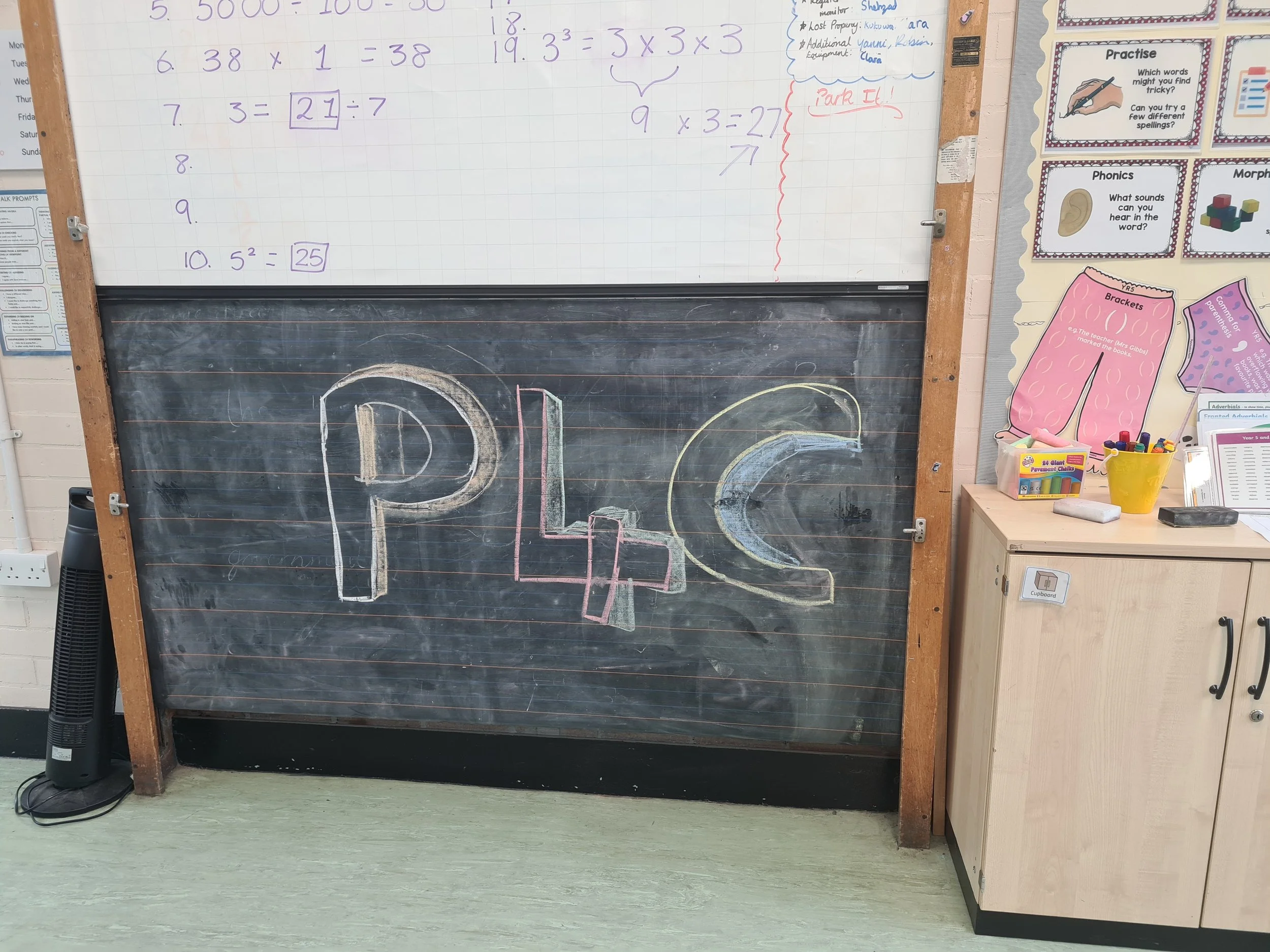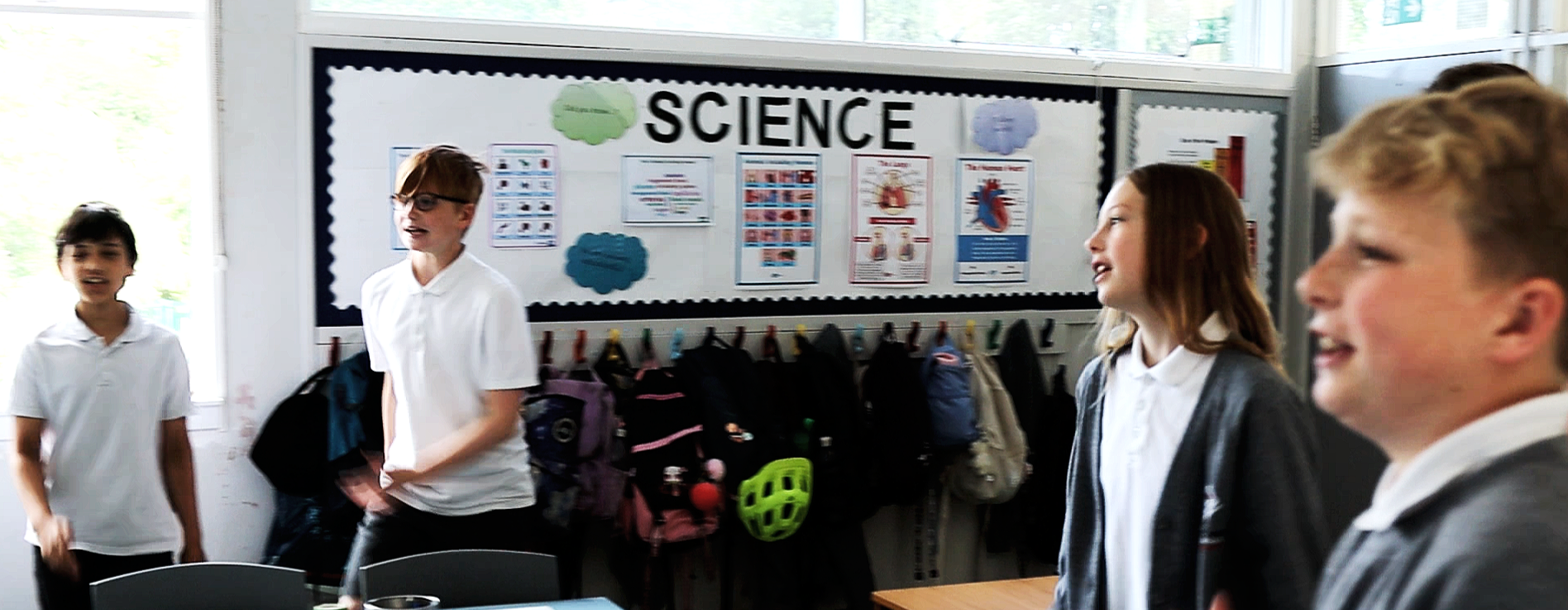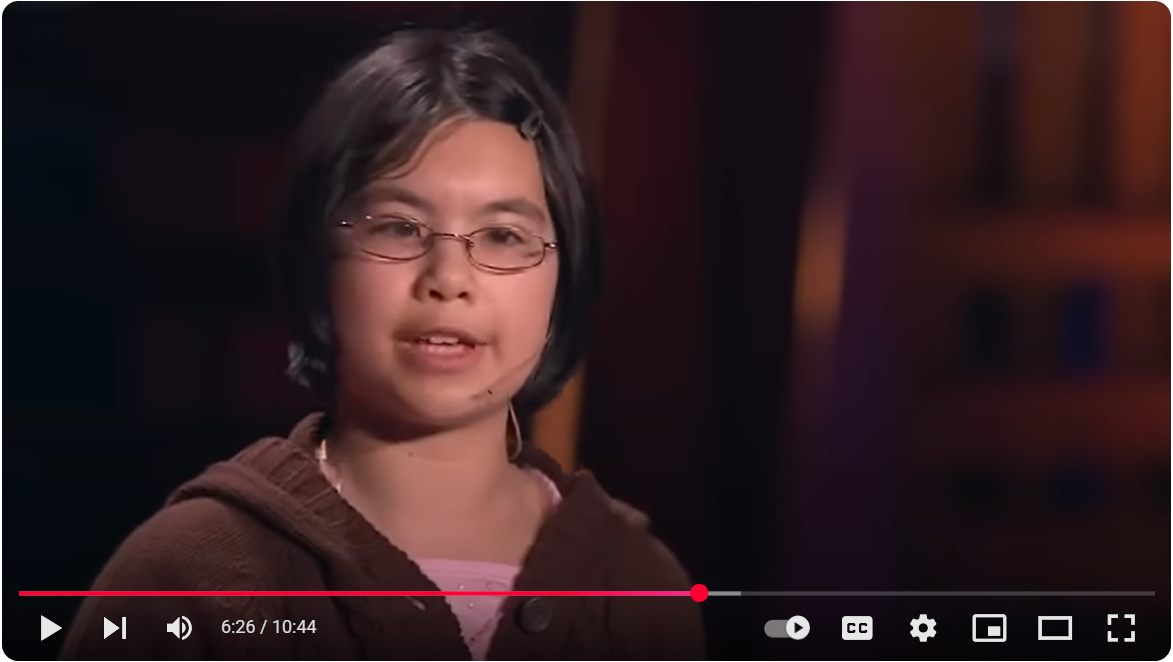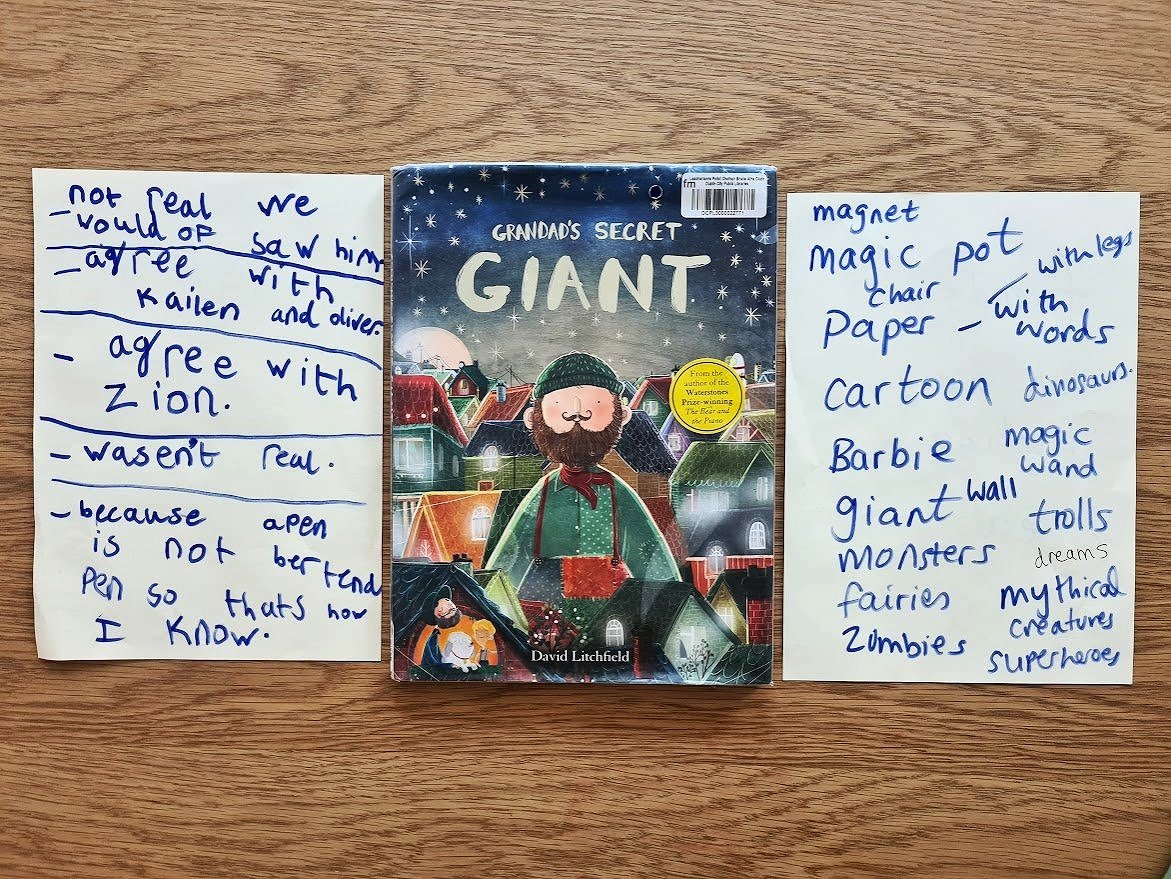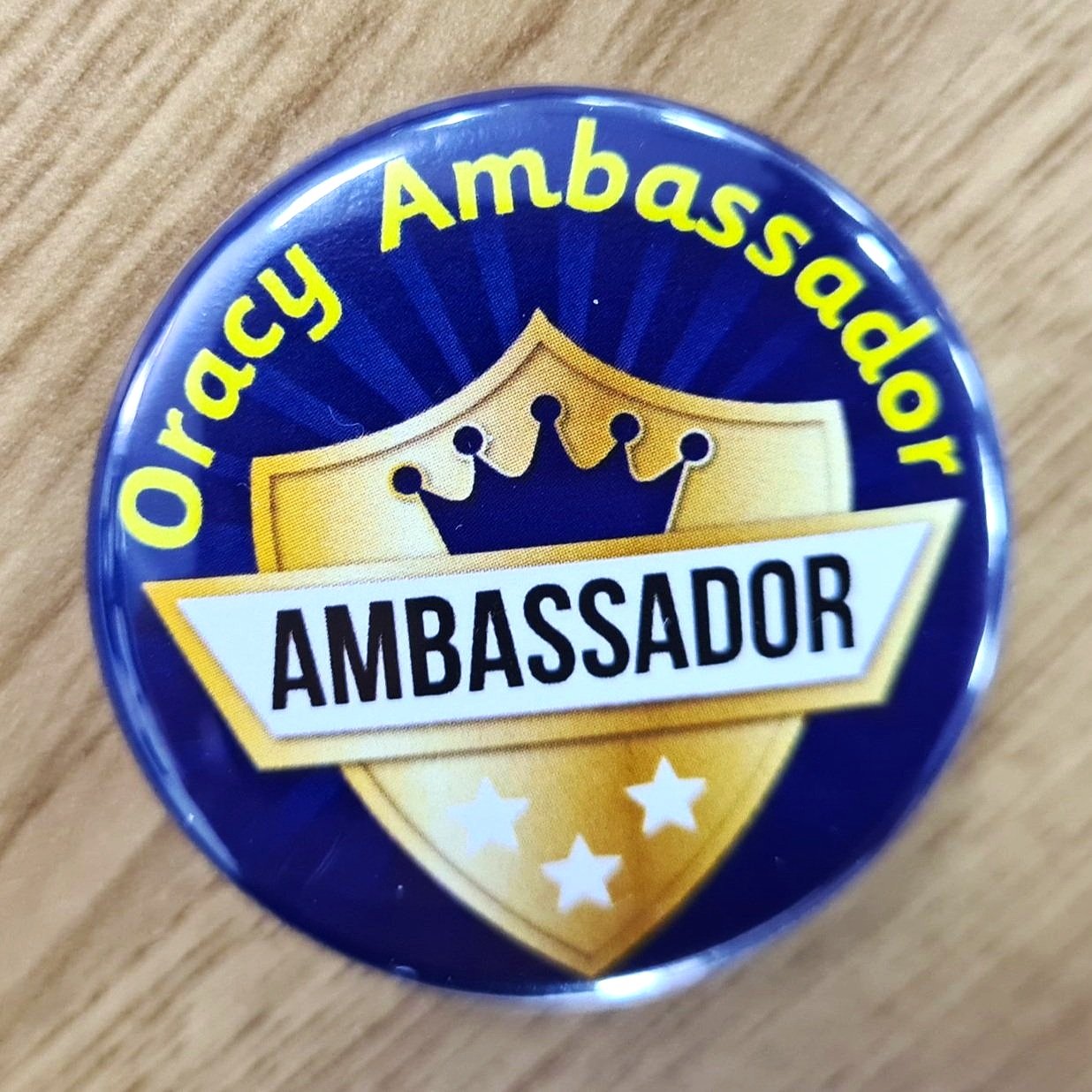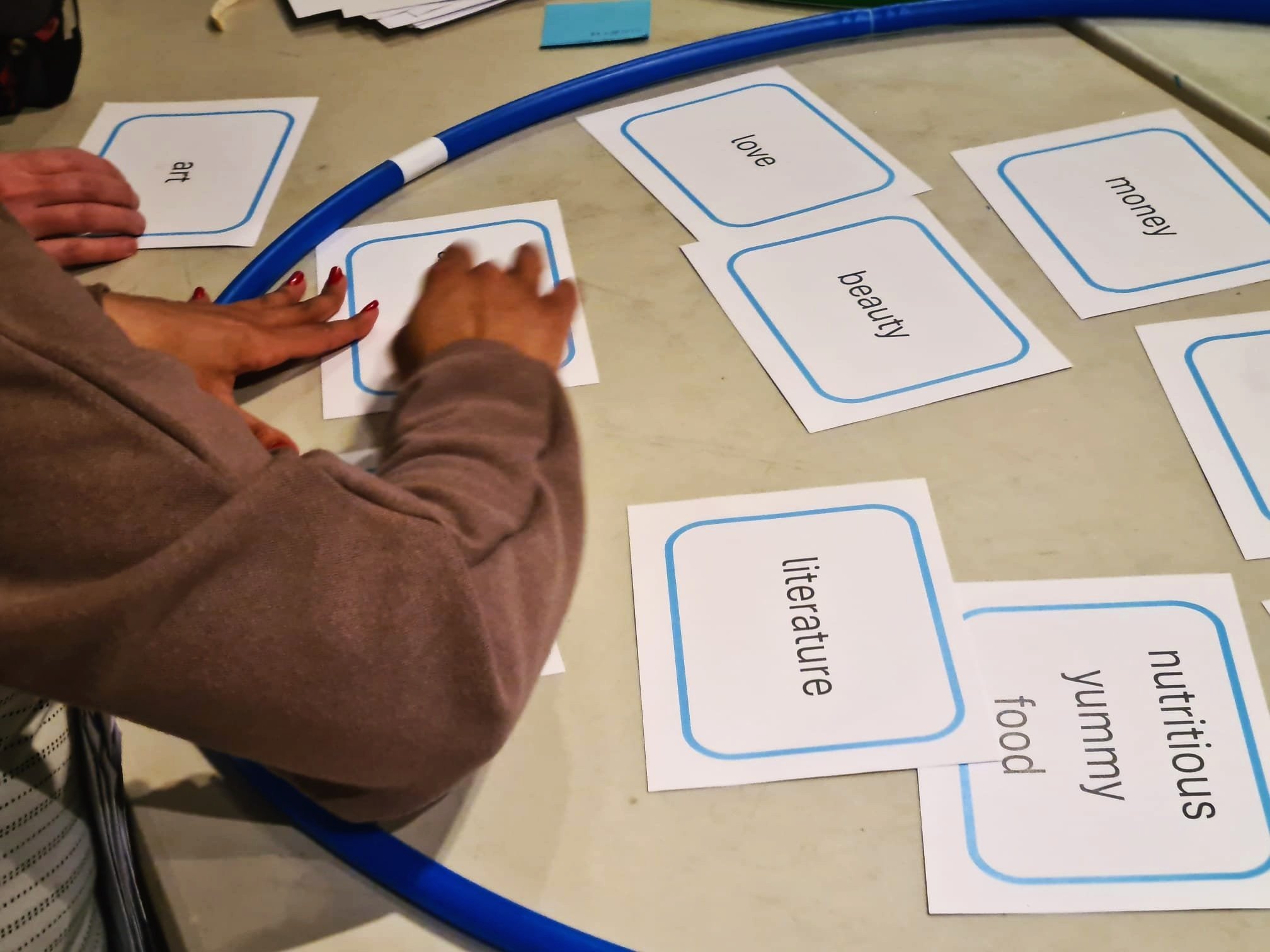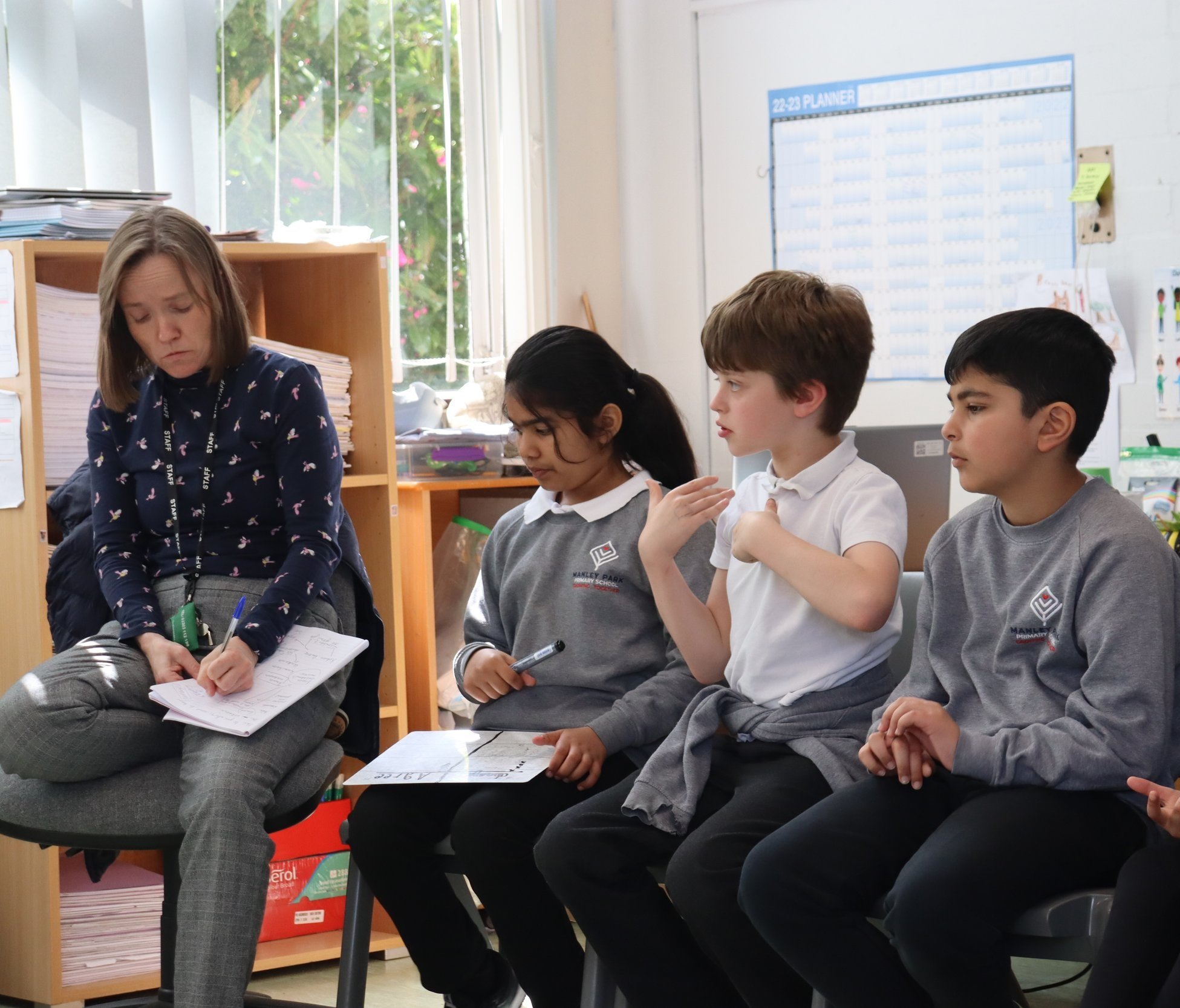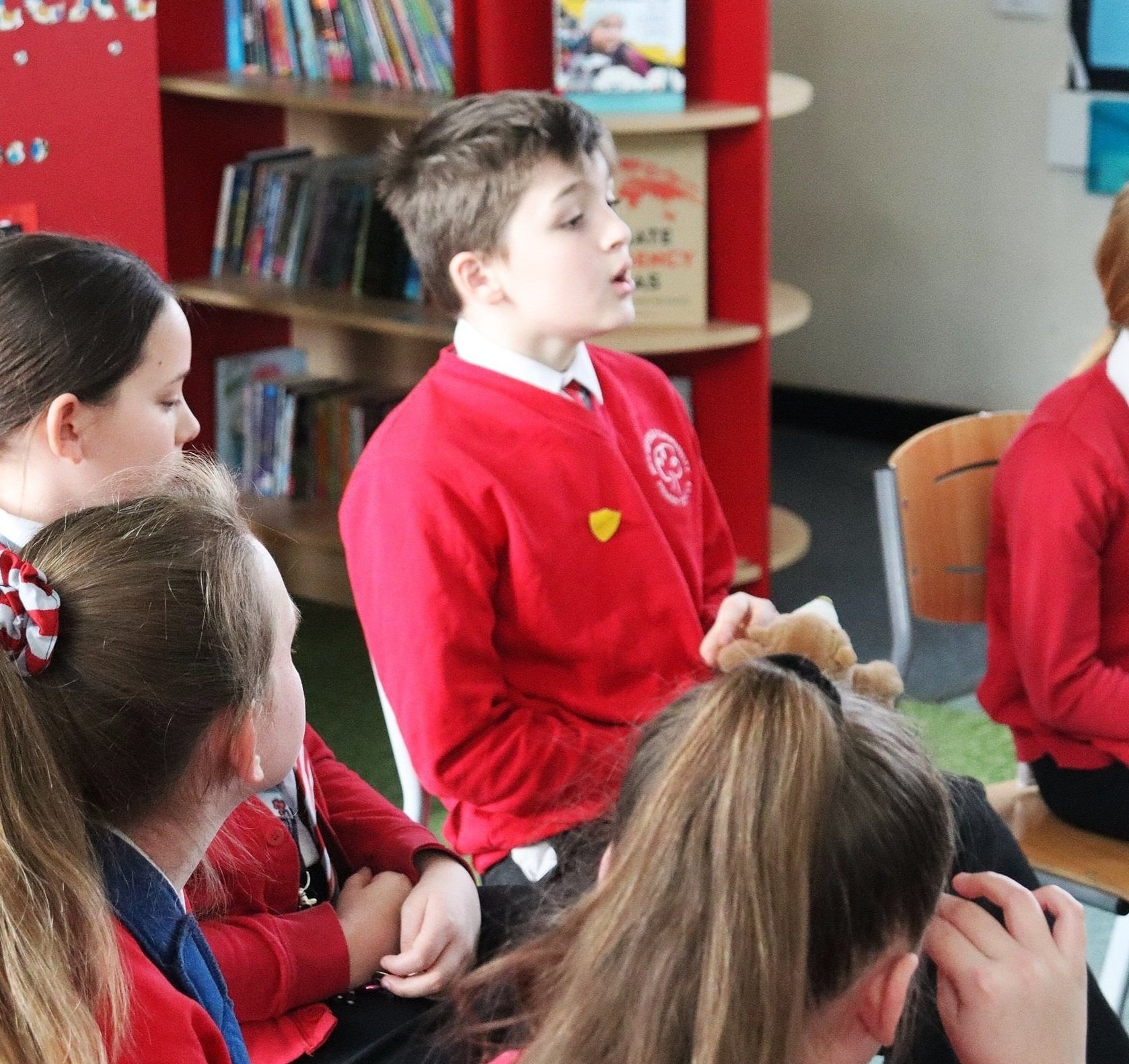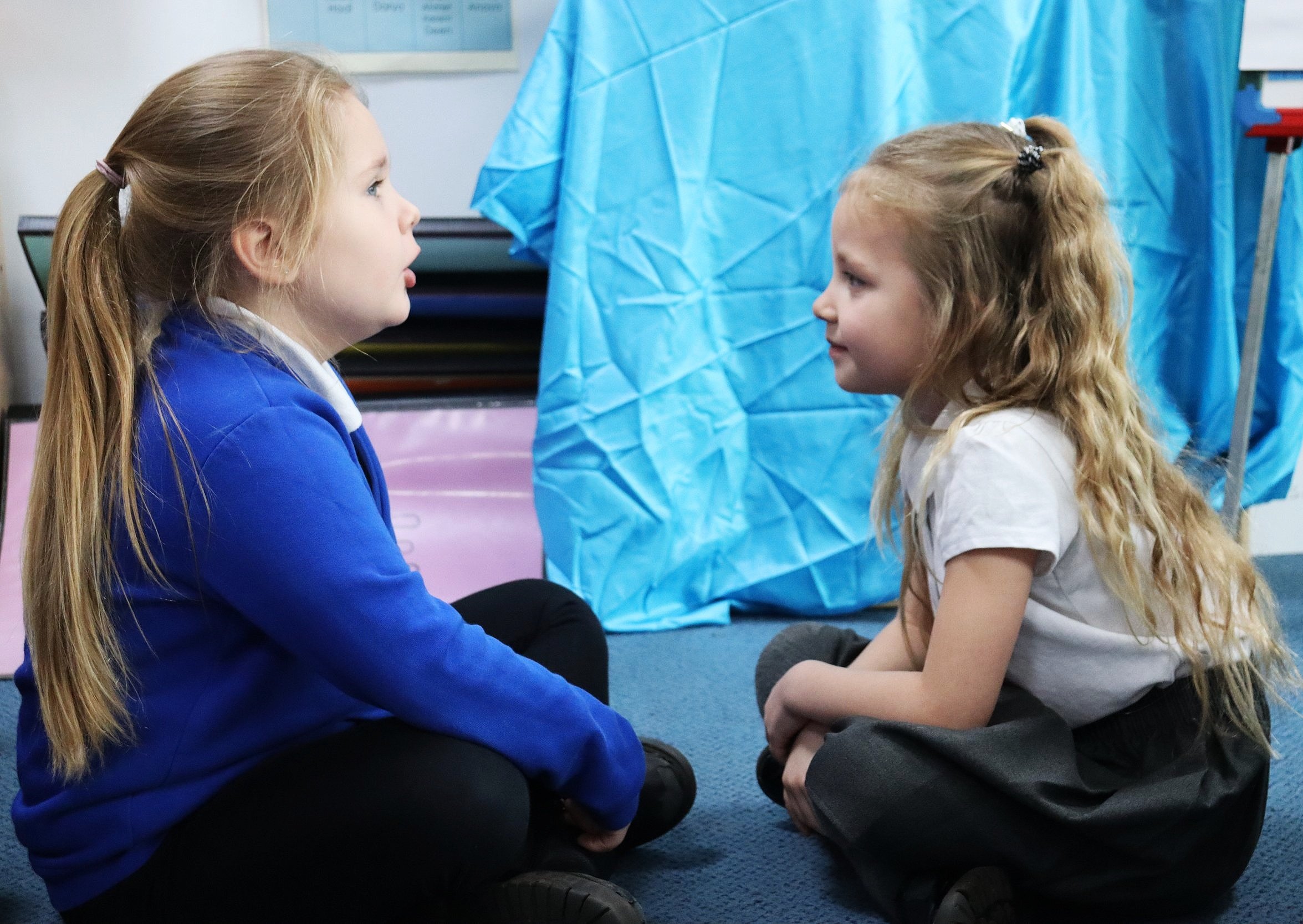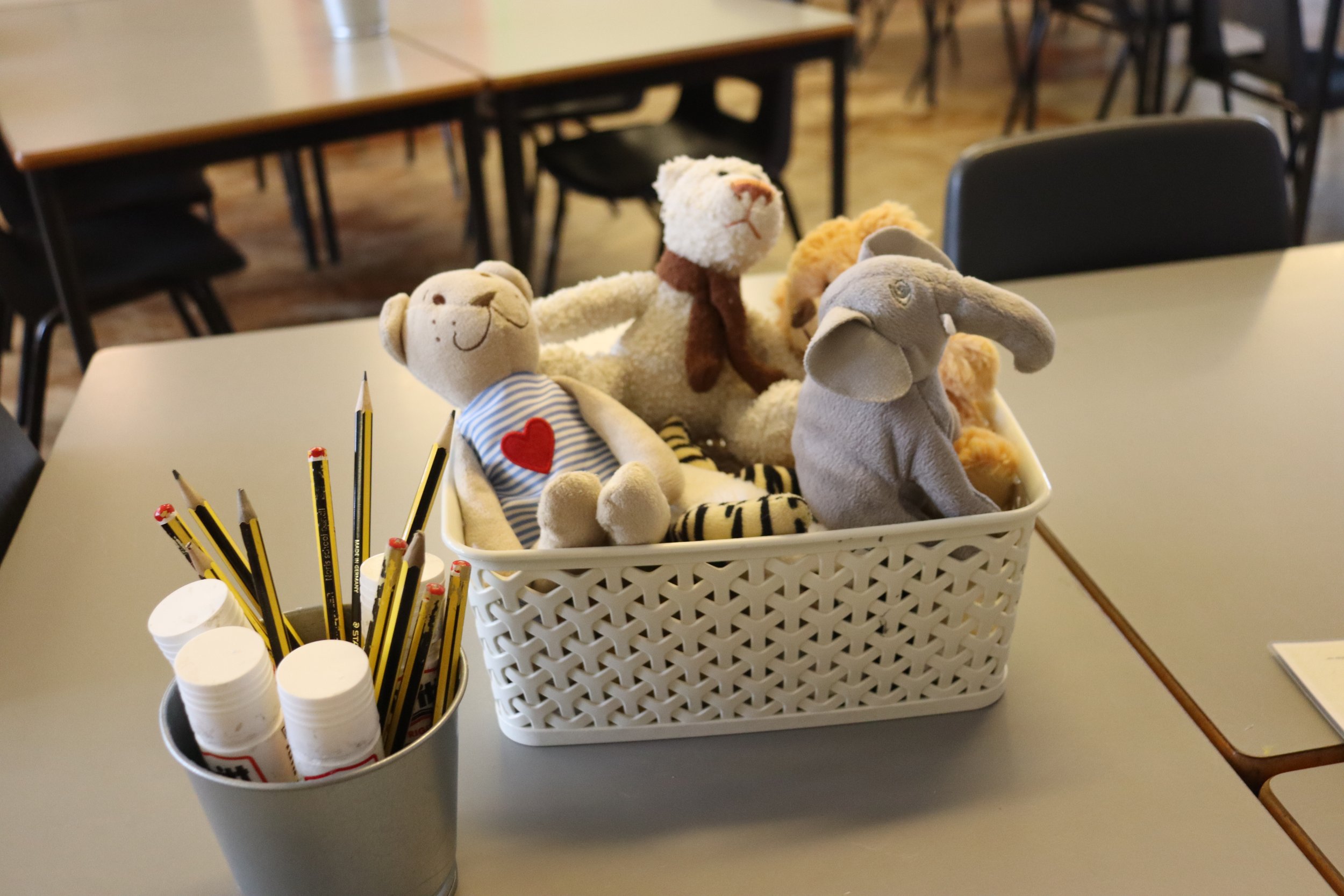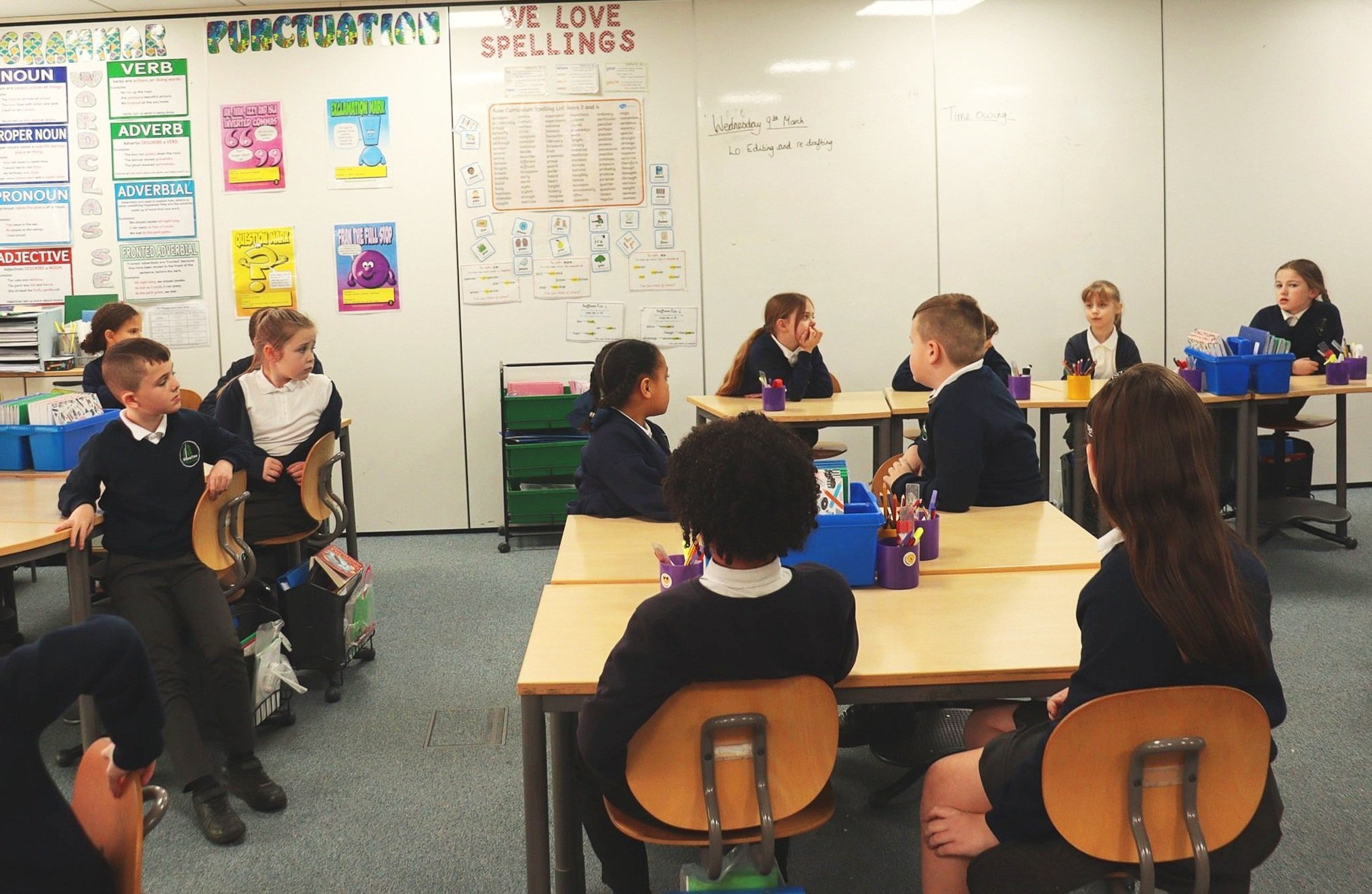About me
I work with schools and other educational institutions to develop a culture of high-quality dialogue and reasoning across the curriculum. I believe high-quality talk is a vital ingredient in narrowing the gap and improving outcomes.
As a qualified teacher, former Assistant Head, Writing Lead and SLE in primary education, I am passionate about transforming classrooms by using student-to-student dialogue – too often a wasted resource.
I deliver fun and active training, speak on the subject of Oracy/Talk, provide hands-on classroom coaching, and carry out Talk Audits. I am an Oracy Cambridge Associate and By-Fellow of Hughes Hall, University of Cambridge, and an accredited P4C (Philosophy for Children) trainer with Thoughtful (formerly SAPERE) and DialogueWorks. In addition to teaching I have worked as a lecturer, trainer and facilitator in the UK and internationally.
Why Talk?
There is very strong, school-based evidence that productive whole-class talk, and productive talk in groups, improves academic attainment, student confidence and engagement.*
Yet in many classrooms this evidence-based practice is still not being implemented – even in settings regarded as good, and even in those which are broad-minded with regard to their curriculum.
I am convinced that developing a culture of talk and listening which truly values student explanations, questions and reasoning, can change the way students view teachers/tutors, and the way students see themselves. It can completely transform the learning environment.

“Very well prepared, with variety, all based on the research evidence. Lots to think about. Presentation style super - very engaging and thoughtful.”
Oracy: 100 Ideas for Primary Teachers and Oracy: 100 Ideas for Secondary Teachers are available to purchase from Bloomsbury and other retailers.
“This wonderful book applies the principles of effective oracy provision to real classroom practice, giving a comprehensive set of activities that can be immediately implemented. I will recommend this to all the oracy leads and schools I work with. This book is simply brilliant!”
A structure which develops speaking and listening, and can be used across the curriculum
How one teacher raises accountability using a quick and simple technique
Give students opportunities to say and apply new vocabulary
How one teacher got everyone thinking, talking, listening and learning
An example of using children’s wonderings to guide a philosophical discussion
Reminders from six-year-olds about some of the benefits of P4C
Show your pupils that you are trying to understand their thinking
Pupils feel that P4C helps them with everything from relationships to confidence to staying calm
Get your pupils thinking about the rights and wrongs of activism
Pupil voice about whole-class talk in Reading lessons
Using an unexpected event as a P4C stimulus
Pupil voice from younger children shows how they enjoy thinking and talking together
*References:
Howe, C., Hennessy, S., Mercer, N. Vrikki, M. & Wheatley, L. (2019). Teacher-student dialogue during classroom teaching: Does it really impact upon student outcomes? Journal of the Learning Sciences, 28 (4-5), 462- 512.
The Education Endowment Foundation (2017). https://educationendowmentfoundation.org.uk/projects-and-evaluation/projects/dialogic-teaching (accessed 11.9.25)
Howe, C. and Mercer, N. (2007) Children’s Social Development, Peer Interaction and Classroom Learning (Primary Review Research Survey 2/1b), Cambridge: University of Cambridge Faculty of Education
Reasoning as a scientist: ways of helping children to use language to learn science Neil Mercer, Lyn Dawes, Rupert Wegerif and Claire Sams, British Educational Research Journal, Vol. 30, No. 3 June 2004



